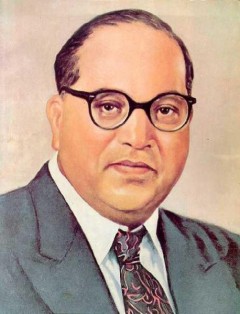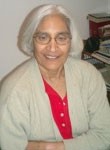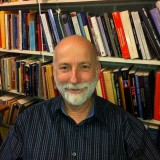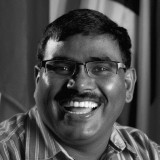 Carleton University and the High Commission of India are pleased to host a one-day seminar to celebrate the 125th birth anniversary of Dr. B.R. Ambedkar, the architect of India’s constitution. The seminar will feature prominent scholars in the field of history of ideas in modern India, especially Dr. Ambedkar’s role and contributions in the creation of the Republic. The seminar will present views from scholars on Dr. Ambedkar’s legacy and try to critically analyze his contributions in the making of India, including his role in the emancipatory struggles of oppressed sections of the society.
Carleton University and the High Commission of India are pleased to host a one-day seminar to celebrate the 125th birth anniversary of Dr. B.R. Ambedkar, the architect of India’s constitution. The seminar will feature prominent scholars in the field of history of ideas in modern India, especially Dr. Ambedkar’s role and contributions in the creation of the Republic. The seminar will present views from scholars on Dr. Ambedkar’s legacy and try to critically analyze his contributions in the making of India, including his role in the emancipatory struggles of oppressed sections of the society.
The seminar will feature prominent scholars from India, USA, and Canada. They keynote address will be given by Dr. Gopal Guru, a world-renowned scholar on Ambedkar’s philosophy and his work. Other speakers include Dr. Anupama Rao from Columbia University, Dr. Arun Mukherjee from York University, and Dr. Chinnaiah Jangam from Carleton University.
The seminar took place on April 26, 2016 from 9AM – 4PM.
Speakers’ Profiles:
Dr. Anupama Rao
 Anupama Rao has research and teaching interests in the history of anti-colonialism; gender and sexuality studies; caste and race; historical anthropology, social theory, and colonial genealogies of human rights and humanitarianism.
Anupama Rao has research and teaching interests in the history of anti-colonialism; gender and sexuality studies; caste and race; historical anthropology, social theory, and colonial genealogies of human rights and humanitarianism.
Her book, The Caste Question (University of California Press, 2009) theorizes caste subalternity, with specific focus on the role of anti-caste thought (and its thinkers) in producing alternative genealogies of political subject-formation through the vernacularization of political universals. She has also written on the themes of colonialism and humanitarianism, and on non-Western histories of gender and sexuality. Recent publications include: Discipline and the Other Body (Duke University Press, 2006); “Death of a Kotwal: Injury and the Politics of Recognition,” Subaltern Studies XII; Violence, Vulnerability and Embodiment (co-editor, special issues of Gender and History, 2004), and Gender and Caste: Issues in Indian Feminism (Kali for Women, 2003).
Professor Rao is currently working on a book on the political thought of B. R. Ambedkar; as well as a project titled Dalit Bombay, which explores the relationship between caste, political culture, and everyday life in colonial and postcolonial Bombay.
Rao received her BA, with honors, from the University of Chicago, and her Ph.D. from the interdepartmental program in anthropology and history at the University of Michigan.
 Dr. Arun Mukherjee
Dr. Arun Mukherjee
Arun Mukherjee did her graduate work in English at the University of Saugar, India and came to Canada as a Commonwealth Scholar in 1971 to do a Ph.D. at the University of Toronto. Her current teaching interests are South Asian and Minority Canadian literatures. She is the author of The Gospel of Wealth in the American Novel: The Rhetoric of Dreiser and His Contemporaries (Croom Helm: 1987), Towards an Aesthetic of Opposition: Essays on Literature, Criticism and Cultural Imperialism (Williams-Wallace: 1988), Oppositional Aesthetics: Readings from a Hyphenated Space (TSAR: 1995), and Postcolonialism: My Living (TSAR: 1998).
She has edited and written the Introduction of Sharing Our Experience (Canadian Advisory Council on the Status of Women: 1993), an anthology of autobiographical writings by aboriginal women and women of colour. She is a member of York Stories Editorial Collective which edited York Stories: Women in Higher Education (TSAR: 2000). Her translation of Dalit writer Omprakash Valmiki’s autobiography Joothan: A Dalit’s Life (Samya: Kolkata & Columbia U Press: 2003) won the New India Foundation Prize for “the finest book published in India during 2002-2003.” Her translation of Dalit writer Sharan Kumar Limbale’s novel, Hindu, was published by Samya in 2010.
Dr. Chinnaiah Jangam
Dr. Jangam is a historian specializing in modern South Asia. He finished his Ph. D. from the School of Oriental and African Studies in London, UK in 2005 and his thesis focused on the intellectual and political writings of Dalits against caste inequality and oppression in colonial South India. Currently he is working on a monograph based on his Ph. D. thesis. He is keenly interested in issues of social justice, human rights, self-respect and dignity, democracy and citizenship. Dr. Jangam has been the recipient of Felix Scholarship for doctoral studies in England. He was also awarded a Guggenheim Fellowship. He has been a post-doctoral fellow at New York University and has taught in Wagner College in New York from 2006-2010.
Since 2014, he has been cross-appointed with Institute of African Studies, Carleton University. In 2013, he was appointed Affiliate, Center for Oral History and Digital Story Telling, Concordia University.
Dr. Noel Salmond
 Educated at Upper Canada College, Bishop’s University, and the Nova Scotia College of Art and Design, I went on to do an M.A. in the History and Philosophy of Religion at Concordia in Montreal. I studied Christian theology and then Sanskrit at McGill University obtaining my doctorate in Asian religions in 1999. I also studied South Asian art at the School of Oriental and African Studies, University of London and held an internship in the Department of Oriental Antiquities at the British Museum. I have been a faculty research fellow with the Shastri Indo-Canadian Institute in India and a Fellow of the Royal Asiatic Society.
Educated at Upper Canada College, Bishop’s University, and the Nova Scotia College of Art and Design, I went on to do an M.A. in the History and Philosophy of Religion at Concordia in Montreal. I studied Christian theology and then Sanskrit at McGill University obtaining my doctorate in Asian religions in 1999. I also studied South Asian art at the School of Oriental and African Studies, University of London and held an internship in the Department of Oriental Antiquities at the British Museum. I have been a faculty research fellow with the Shastri Indo-Canadian Institute in India and a Fellow of the Royal Asiatic Society.
